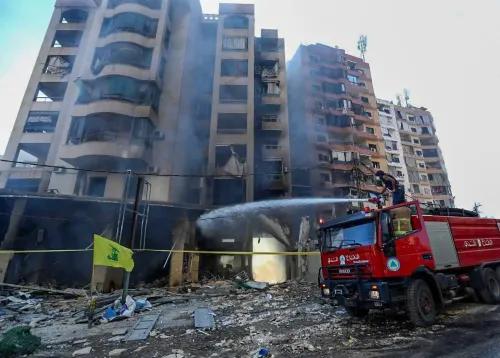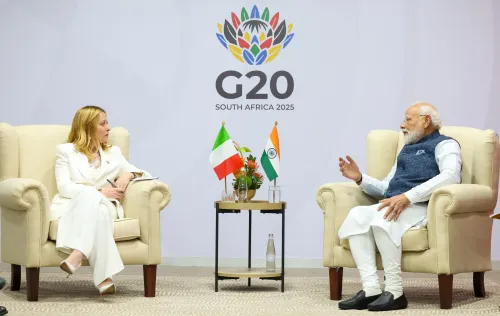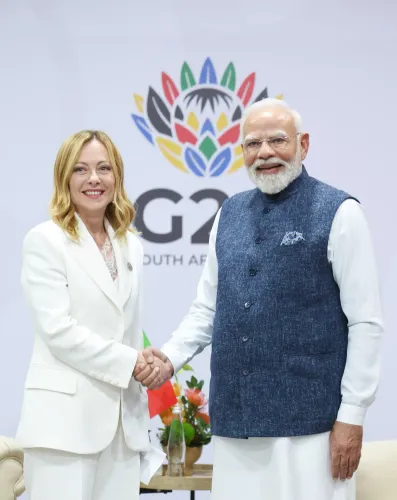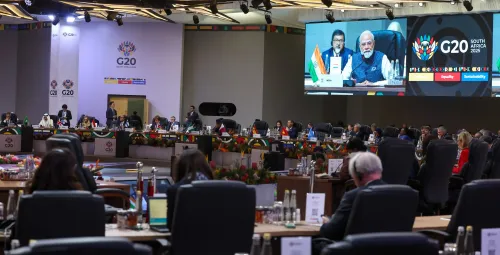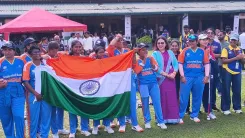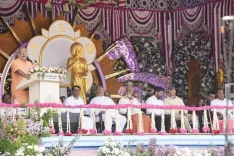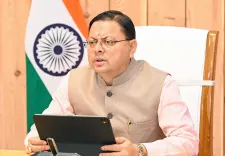Will Bangladesh Soon See the Restoration of Democratic Order?
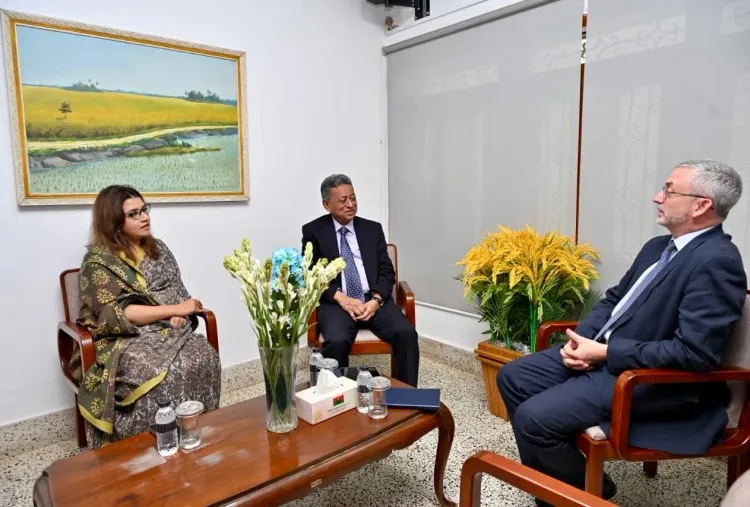
Synopsis
Key Takeaways
- EU Ambassador Michael Miller expresses hope for democratic restoration in Bangladesh.
- The upcoming elections in February are crucial for the country's political future.
- International organizations are advocating for free and inclusive electoral processes.
- Recent legislative changes have raised concerns about political freedoms.
- The EU seeks collaboration with the future Bangladeshi government.
Dhaka, June 26 (NationPress) Michael Miller, the European Union's Ambassador to Bangladesh, expressed optimism on Thursday regarding the imminent recovery of democratic order in Bangladesh, anticipated through a free, fair, and credible national election.
The EU Ambassador shared these insights during a meeting with Amir Khosru Mahmud Chowdhury, a member of the Bangladesh Nationalist Party (BNP) Standing Committee, at the party chairperson’s office in Dhaka. The gathering was also attended by BNP Organising Secretary Shama Obaed, as reported by local media.
After the meeting, Khosru informed reporters that, like other international stakeholders, the EU is looking forward to the establishment of an elected government to outline the future course of action.
“The primary focus of our discussion was the upcoming election. Scheduled for February, there is a sense of relief and satisfaction among stakeholders who hope for a quick shift towards elections and a return to democratic governance. They prefer collaborating with an elected administration, and we had in-depth discussions about this,” quoted Khosru from Bangladeshi media outlet UNB.
He further mentioned that the meeting addressed the challenges and rights of workers in Bangladesh.
Khosru also indicated that the EU aims to engage with the future Parliament of Bangladesh to ensure that activities can be conducted independently, effectively, and with accountability.
“The EU is exploring innovative funding mechanisms and desires to partner economically with the next government, establishing itself as a development partner for Bangladesh. This is a promising development,” Khosru added.
Recently, the United Nations High Commissioner for Human Rights, Volker Turk, voiced serious concerns regarding recent legislative changes under the Muhammad Yunus-led interim government in Bangladesh, which permits the prohibition of political parties, organizations, and their associated activities.
During the 59th session of the Human Rights Council in Geneva, Turk urged the interim government to pursue substantial reforms to foster an environment conducive to free and inclusive elections.
"I am troubled by recent legislative changes that facilitate the banning of political parties and organizations, which excessively curtail the freedoms of association, expression, and assembly. I call for meaningful reforms to enable free and inclusive elections," stated Turk.
Previously, the Office of the United Nations High Commissioner for Human Rights (OHCHR) released a fact-finding report on Bangladesh, highlighting specific recommendations in areas such as accountability, justice, police and security, civic space, political system, and economic governance.
The report indicated that prohibiting political parties would obstruct a genuine transition to a multiparty democracy, effectively disenfranchising a significant portion of the Bangladeshi electorate.
Human Rights Watch, a US-based advocacy group, also condemned the Yunus administration for its attempts to suppress the rights of supporters of former Prime Minister Sheikh Hasina and the Awami League party.
The recent legislative actions by the interim government threaten to undermine fundamental freedoms, emphasized the rights organization in a statement.
"On May 12, the interim government imposed a 'temporary' ban on the Awami League using newly enacted powers under a stringent amendment to the Anti-Terrorism Act. This ban encompasses various actions, including meetings, publications, and online expressions supporting the party," noted HRW.
"This ban will remain in effect until party leaders undergo trial for alleged abuses committed during their 15-year governance, a process that could extend for years, thus effectively rendering the party inactive. The interim government has prohibited all activities, including any form of publication, media, online and social media engagement, and any kind of campaign, procession, meeting, gathering, or conference by the Bangladesh Awami League, severely limiting supporters' freedoms of speech and association," they added.
Earlier, UN Secretary-General Antonio Guterres also called for inclusive elections in Bangladesh, urging the interim government under Yunus to make every effort to be inclusive, considering the voices of women, youth, and minority and indigenous communities.

